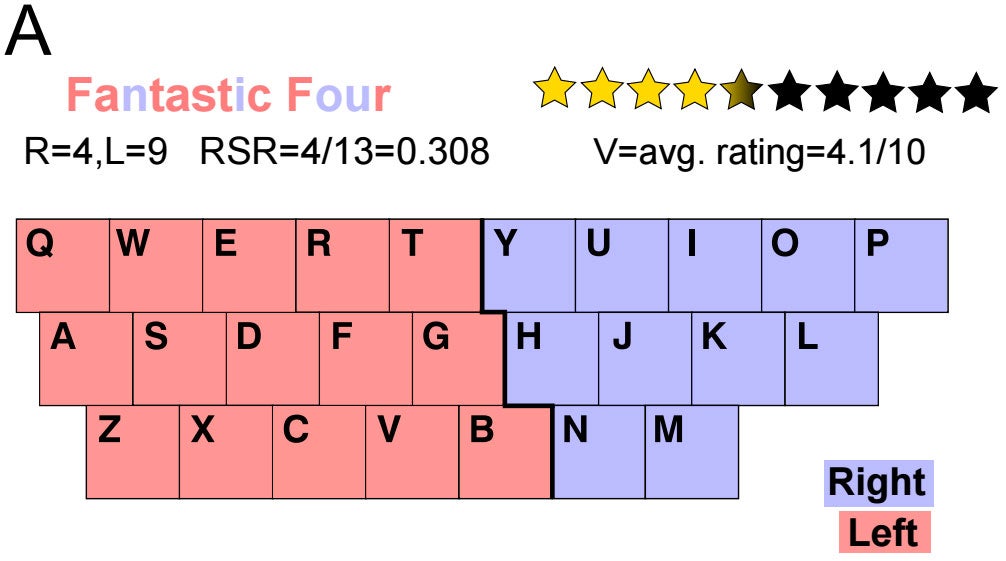The QWERTY effect: Products spelt with more letters from one side of the keyboard are more popular, study claims
Your keyboard may be influencing your behaviour online

People tend to prefer products and videos which are spelt with more letters from the right-hand side of the QWERTY keyboard, a new study has found.
The study, conducted by David Garcia from Zurich's Federal Institute of Technology and Markus Strohmaier from the Leibniz Institute for the Social Sciences, looked into the phenomenon known as 'the QWERTY effect', the theory that the layout of the keyboard can influence word meanings by linking positivity to the right side and negativity to the left.
In their investigation, the pair gathered huge amounts of data from websites like Amazon, IMDB, Yelp, YouTube and even Pornhub, recording things like product names and video titles.

When analysing the data, they found that the content with more 'right-side letters' was more highly-rated by the audience in reviews, 'likes' or ratings.
Out of the 11 sites included in the study, there was a positive correlation between the ratio of right-side letters and good ratings on 10 of them. Porn site Redtube was the only outlier, where more right-side letters actually seemed to result in fewer 'likes'.
In a paper on their research, published online and presented at April's International World Wide Web Conference in Montréal, Garcia and Strohmaier claim the study "provides the first evidence of the extent of the QWERTY effect on the web."
"In our datasets we confirm that products with more right side letters and fewer left side letters have higher average ratings," they add.
Their findings seem implausbile, but the effect has been demonstrated before. As Quartz notes, a 2014 study found that baby names containing more right-side letters became more popular with the standardisation of the QWERTY keyboard and the spread of home computers in the second half of the 20th century. The effect has also been observed in non-English-speaking countries, where keyboard layouts are often slightly different.
Garcia and Strohmaier's study doesn't explain why the QWERTY effect seems to exist, however. Some studies have suggested it may be to do with right-side letters being easier to type for right-handed people, or possibly the English association of 'right' with 'correct'.
The pair say their work lays the foundation for further psychological study into the effect, focusing particularly on how the right-side ratio of certain messages may affect their popularity or shareability.
Join our commenting forum
Join thought-provoking conversations, follow other Independent readers and see their replies
0Comments